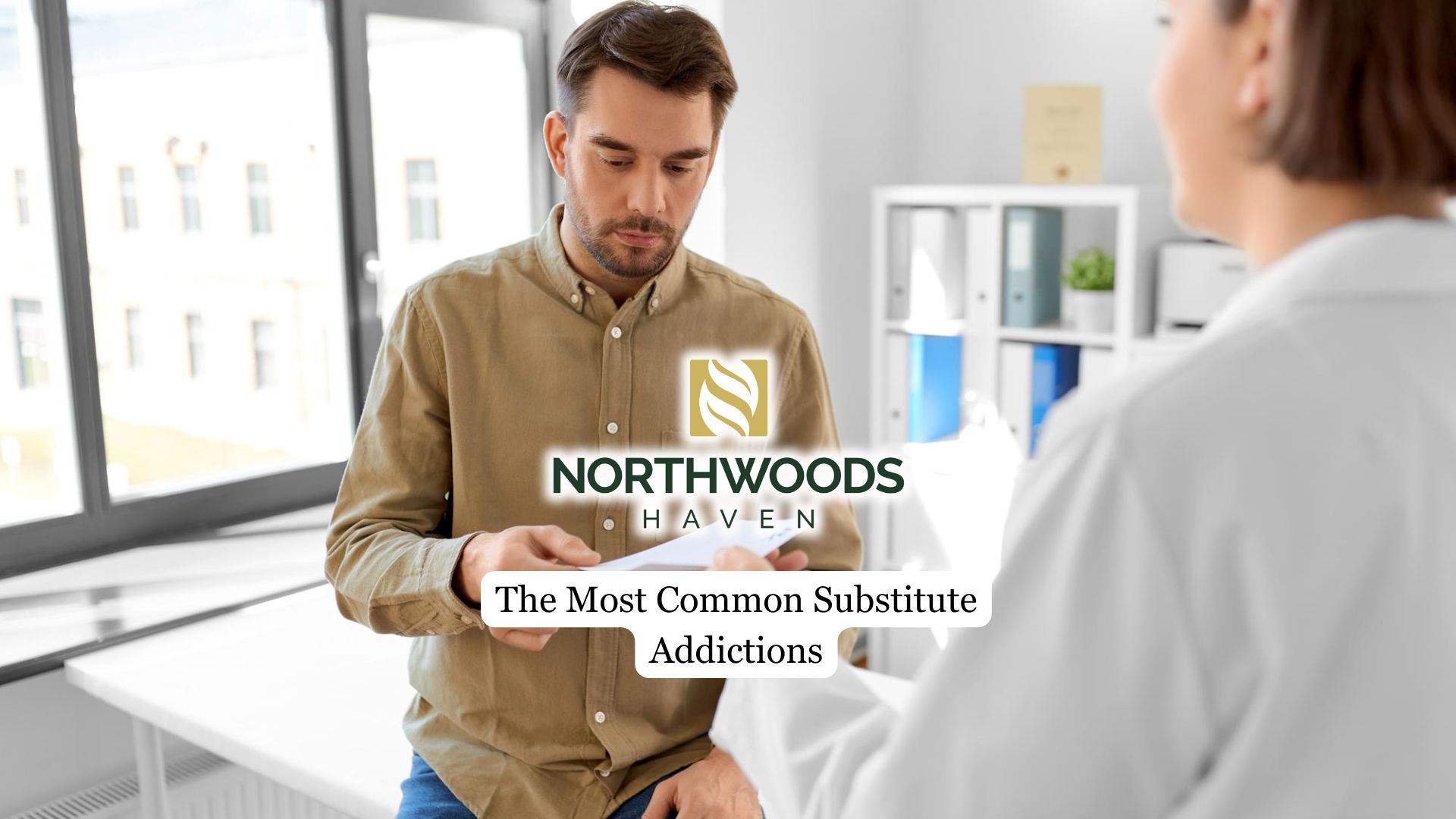As individuals embark on the challenging journey of recovery from substance abuse, they often develop substitute addictions. These replacement behaviors can emerge as the brain, still wired for addictive patterns, seeks new sources of dopamine and emotional fulfillment. The root causes of substitute addictions are also linked to underlying mental health issues, such as depression, anxiety, or trauma. When these underlying issues are not addressed, individuals may find themselves turning to new addictive behaviors as a coping mechanism.
In this article, we’ll delve into the most common substitute addictions that individuals in recovery may face.
Food Addiction
If you find yourself turning to food as a source of comfort, you may be engaging in compulsive overeating, which can trigger reward circuits in your brain similar to substance use disorders. This can lead to a cycle of emotional highs and lows, making it difficult to break free from the pattern of emotional distress and comfort eating.
Approximately 1.4% of adults are affected by binge eating disorder, with a significant portion (24.8%) reporting a history of substance use disorder. Comfort foods, often high in calories and sugar, may become your primary source of dopamine release, contributing to poor nutritional choices and potential weight gain.
The emotional distress associated with food addiction may stem from childhood associations with food as a source of comfort, perpetuating unhealthy eating habits into adulthood.
If you or a loved one are struggling with addiction or finding yourself grappling with substitute behaviors, it’s important to remember that there’s available professional support for addiction recovery.
Gambling Disorder
Gambling disorder, a behavioral addiction recognized in the DSM-V-TR, is characterized by persistent and recurrent problematic gambling behavior that disrupts personal, family, or vocational pursuits.
You may find yourself drawn to the emotional highs from winning, leading to continued gambling despite significant financial losses and personal consequences.
Approximately 1% of the adult population in the US meets the criteria for gambling disorder, with higher prevalence rates among adolescents and young adults. The disorder can escalate quickly, with signs including hiding gambling activities, accumulating debt, and neglecting responsibilities, leading to detrimental effects on your mental health and relationships.
Treatment options, such as cognitive-behavioral therapy and support groups, have shown effectiveness in helping individuals like you regain control over compulsive gambling behavior.
Shopping Compulsion
Shopping compulsion is characterized by an uncontrollable urge to purchase items, often leading to financial instability and emotional distress.
If you struggle with shopping compulsion, you might feel a sense of euphoria while making purchases, followed by guilt and shame once the transactions are complete. This cycle of emotional highs and lows can be difficult to break, especially as the addiction leads to significant debt and financial problems.
Be aware of behavioral changes, such as secrecy about purchases and unusual shopping hours, as these are common indicators of problematic shopping habits.

Exercise Dependence
Exercise dependence, also known as exercise addiction, occurs when you engage in excessive physical activity to the detriment of your physical and mental health, often neglecting other life responsibilities.
You may experience withdrawal symptoms, such as anxiety or irritability, when unable to engage in your workout routines, mirroring behaviors seen in substance use disorders.
Over-exercising can lead to serious health issues, including injuries, hormonal imbalances, and mental health disorders like anxiety and depression.
Although It’s crucial to establish healthy exercise habits that maintain balance, excessive exercise can ultimately lead to burnout, injury, and a decline in your overall well-being.
Digital Overengagement
You may find yourself compulsively checking your phone, scrolling through social media, or gaming for hours on end.
Individuals spend an average of 7 hours per day on digital devices, with excessive screen time leading to neglect of responsibilities and strained personal relationships. Symptoms of digital overengagement include feelings of guilt or shame related to your usage, as well as defensiveness when discussing it with others.
Internet addiction can also disrupt your sleep patterns, with 73% of heavy internet users reporting sleep disturbances due to late-night screen time.
To maintain your mental health and prevent the negative consequences associated with digital overengagement, it’s crucial to unplug for several hours each day.
Nicotine Addiction
Lighting up a cigarette or reaching for your vape pen may seem like a harmless way to cope with stress or fill the void left by other addictions, but nicotine is a powerful substance that can quickly lead to dependence.
As one of the most common substitute addictions, nicotine addiction affects millions of Americans, with 34.2 million adults currently smoking cigarettes. Nicotine activates the brain’s reward pathways, providing a quick dopamine release that reinforces the desire to continue using despite negative consequences.
This makes it particularly challenging for those in recovery from other substance use disorders, as the withdrawal symptoms can include irritability, anxiety, and intense cravings. Research shows that individuals with a history of substance use disorders are more likely to develop nicotine dependence, further complicating their recovery journey.
Final Thoughts from Northwoods Haven Recovery
The recovery process extends far beyond simply abstaining from a primary substance. Recognizing and addressing the potential pitfalls of substitute addiction is crucial for achieving lasting sobriety and overall well-being.
At Northwoods Haven in Minneapolis we offer a luxury intensive outpatient program designed to address the multifaceted nature of addiction recovery. Our comprehensive approach not only focuses on primary substance abuse but also equips individuals with the tools to identify and manage substitute addictions.



